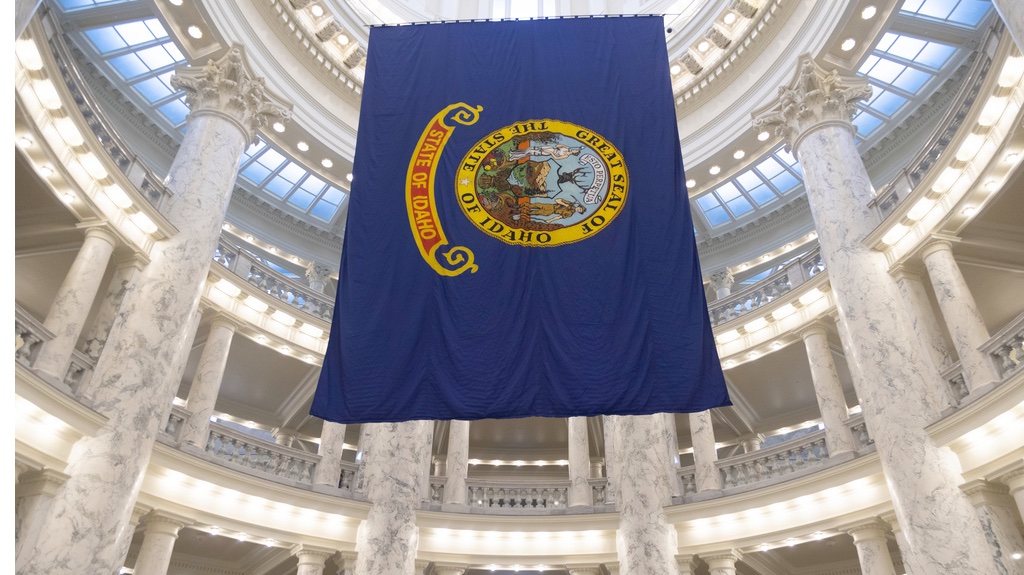May 23, 2012
Anti-Bullying Laws Spread Throughout New York, Jersey
Winnie McCroy READ TIME: 4 MIN.
In what is becoming sweeping legislation in the New York tri-state area, openly gay Yonkers City Councilmember Michael Sabatino recently succeeded in getting anti-bullying workplace legislation added to that city's code of ethics, similar to recent New Jersey legislation. New York State's Dignity for All Students Act will soon provide similar protection in schools.
"I think this is important because bullying is very damaging to anybody," said Sabatino. "People have to be put on notice that this is not acceptable. We want an environment in the City of Yonkers that's not a hostile work environment, where people feel safe and not subject to bullying."
Sabatino was joined by Council President Chuck Lesnick, Majority Leader Wilson Terrero, Minority Leader John Larkin, and other Council Members to introduce legislation to prevent workplace bullying. According to Sabatino, the legislation passed unanimously at the May 8 City Council Meeting, with a 7-0 vote.
"Whereas the City of Yonkers believes it is in the best interest of the City to implement a zero tolerance policy towards workplace bullying and to have a policy in effect...the Yonkers City Council request that the Human Rights Commission work with the Human Resources Department and the Corporation to define bullying in the workplace...and create appropriate training materials to instruct the City of Yonkers employees," reads the legislation.
The legislation goes on to require that workplace bullying be "integrated into ethics training and new employee orientations," and added to posted workplace behavior information sheets found in designated areas in city buildings and workspaces.
"We've taken the lead, and what we are really hoping is that the state will follow and make it a state law," said Sabatino. To that end, Sabatino cited similar legislation recently passed in New Jersey.
On January 23, the Borough Council of Ridgefield, NJ, approved an ordinance to prohibit bullying by employees, in municipal facilities, and in borough recreation programs. The measure, which is the first of its kind in the state, calls for the formation of a committee to receive bullying complaints, investigate them, and recommend remedial action. The ordinance passed 5-0, with Republican Councilmember Angus Todd abstaining, believing existing laws already prevent harassment.
Such anti-bullying legislation -- the toughest in the nation -- already exists for New Jersey schools. It was enacted soon after18-year-old Rutgers University freshman Tyler Clementi jumped to his death off the George Washington Bridge after his roommate Dharun Ravi secretly broadcast his gay hookup on the Internet. Forty-five states have similar laws against bullying.
And in New York State, the Dignity for All Students Act will go into effect on July 1. The Dignity Act provides protections for all public school students against discrimination, bullying, and harassment based on, but not limited to, real or perceived race, color, weight, national origin, ethnicity, religion, religious practice, disability, sexual orientation, gender identity or expression and sex.
"It was one of the first pieces of legislation I introduced after I was elected to the New York State Senate in 1998 and after years of hard work, it is now a reality," said openly gay Senator Tom Duane. "This comprehensive law protects all students -- including our LGBT youth -- from harassment and bullying in our schools. Significantly, it is the first time protections for transgendered New Yorkers will be enshrined in our State Law."
In response to public comment, including a March 5 letter from openly gay Assembly Member Daniel O'Donnell, the New York State Education Department has included charter schools in proposed new regulations intended to combat bullying in all New York State schools.
"The Dignity Act was written to apply to all public schools in the state. I thank Regent [Merryl H.] Tisch and the Board of Regents for including charter schools and ensuring that all our public school students receive the increased protection from bullying that they need and deserve," said O'Donnell.
But as Sabatino noted, "We can't only worry about children bullying. A lot of this goes on with adults as well, not just over sexual orientation, but for lots of other reasons... between manager and subordinate, because of a disability, or for being overweight. I think we all experience bullying, and we want to make sure we're going on record that the City of Yonkers is not going to tolerate anything like this."
Enacting such strident anti-bullying legislation for City employees creates a climate of acceptance, said Sabatino -- one that he believes will trickle down to the wider community.
"The acceptance level has really changed since I've taken office," said Sabatino. "A police captain recently came up to me and said, 'I don't want to offend you, but how can we get more gay people to move to Yonkers? They always beautify the neighborhoods, and the crime rate becomes so low.' As people get to know who I am -- to know a gay person -- the barriers melt away."
Winnie McCroy is the Women on the EDGE Editor, HIV/Health Editor, and Assistant Entertainment Editor for EDGE Media Network, handling all women's news, HIV health stories and theater reviews throughout the U.S. She has contributed to other publications, including The Village Voice, Gay City News, Chelsea Now and The Advocate, and lives in Brooklyn, New York.






